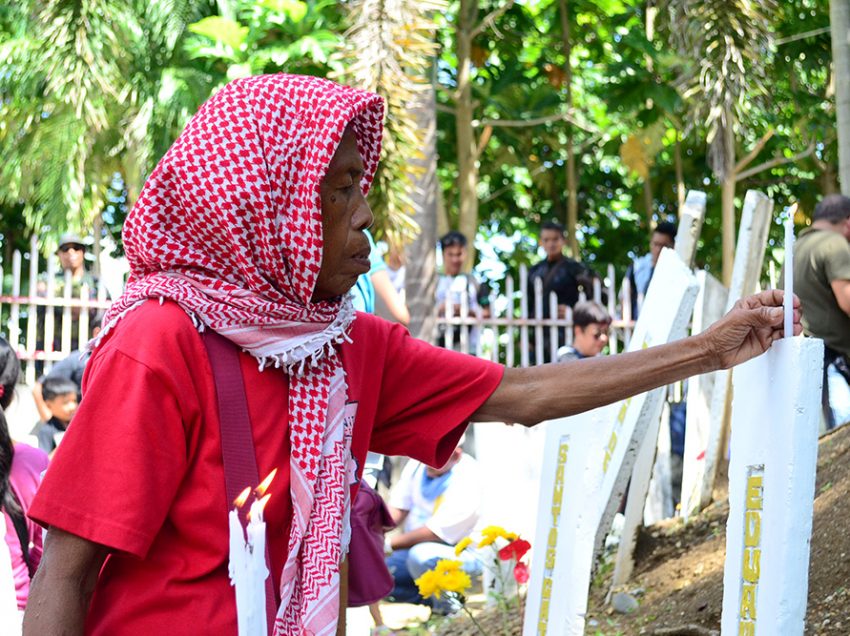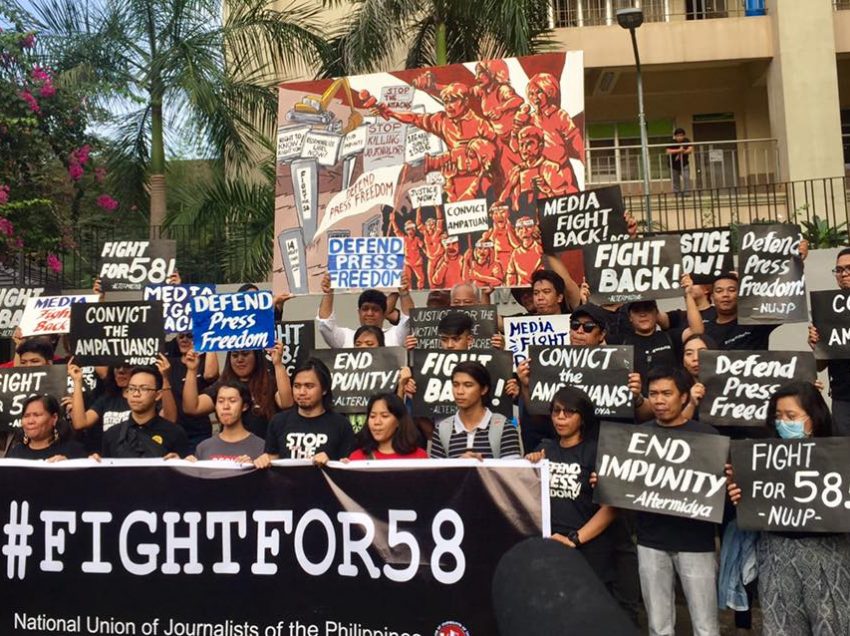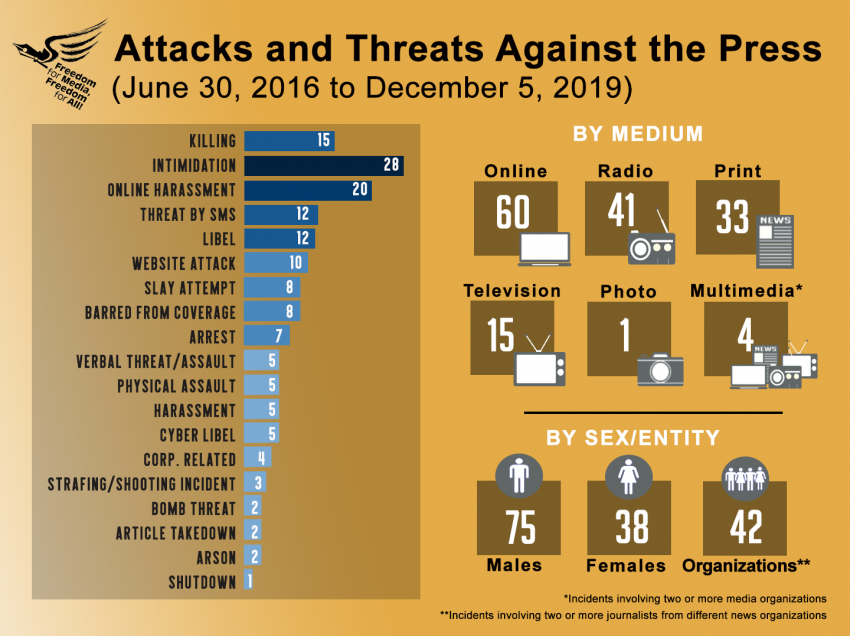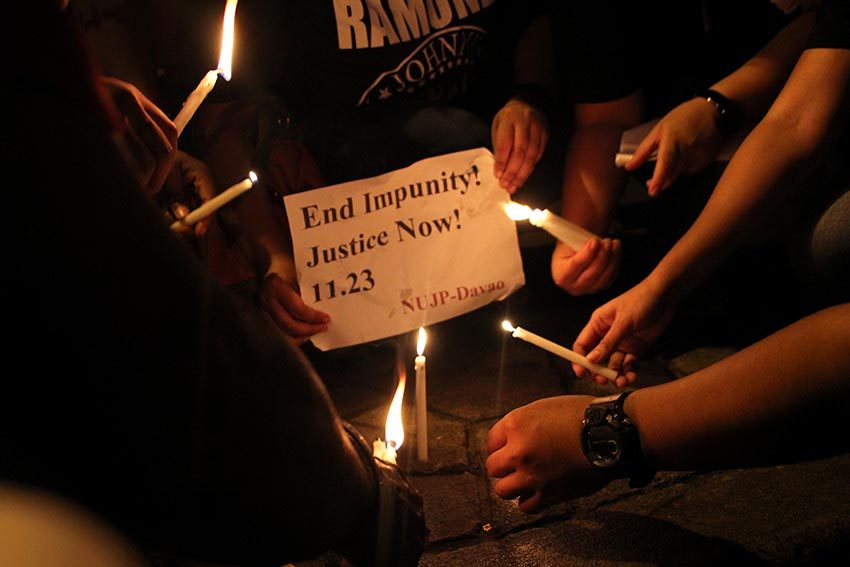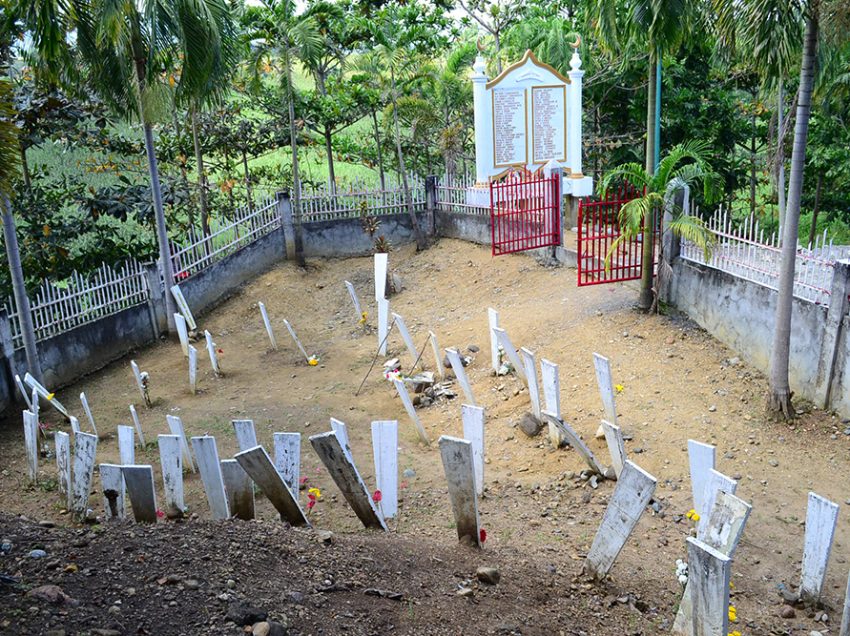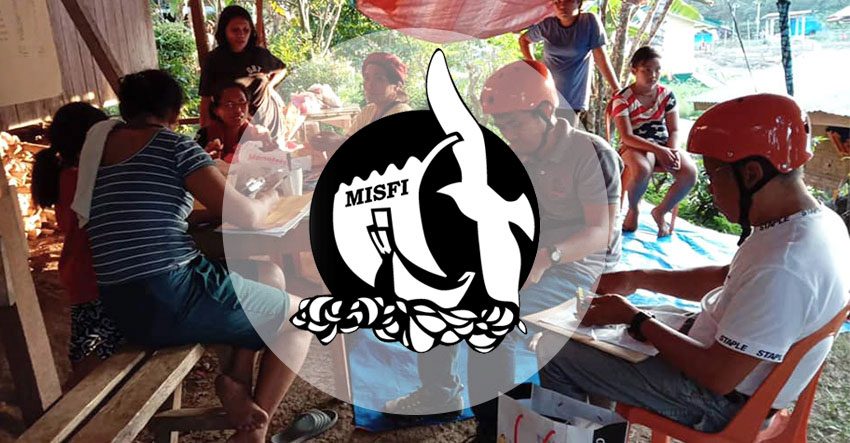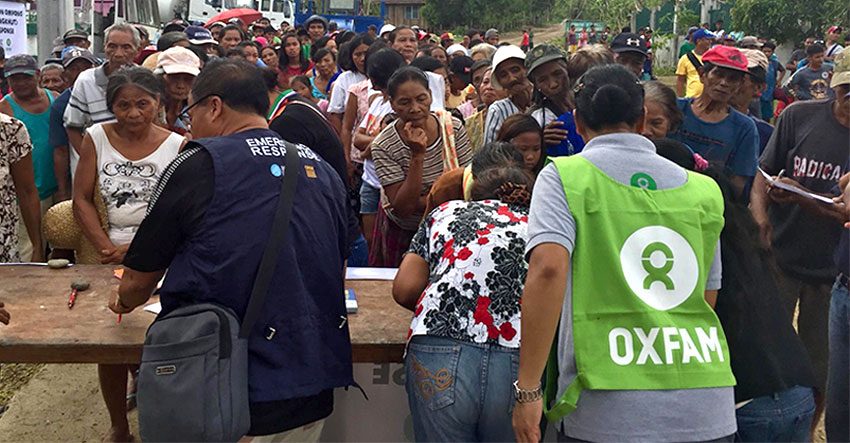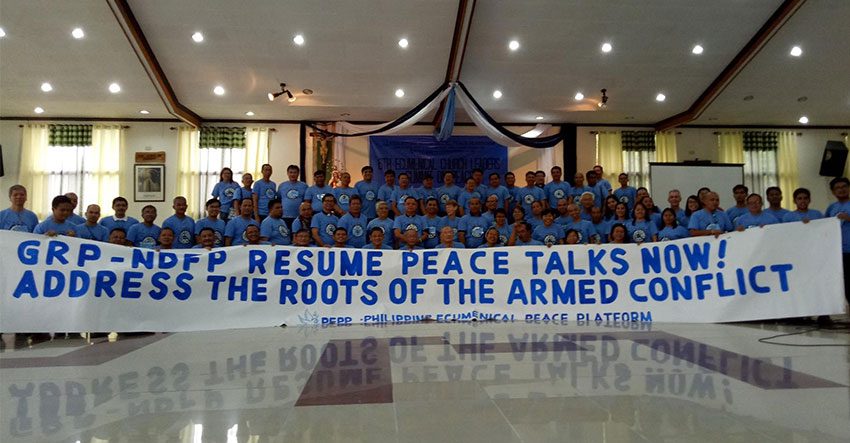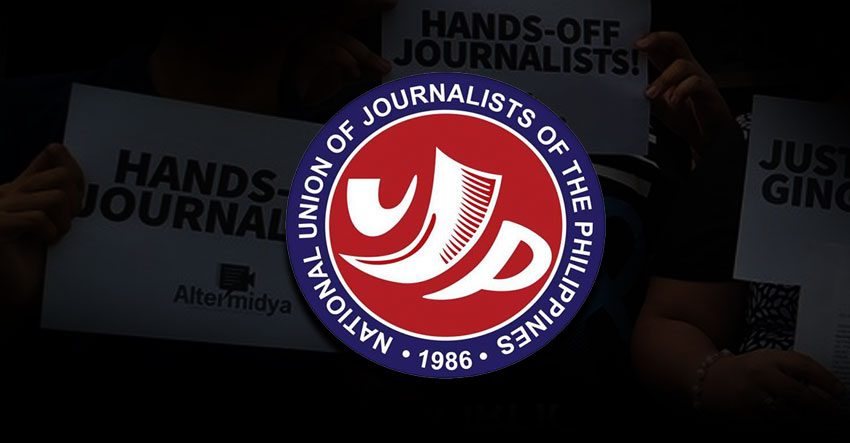The Philippine chapter of the International Association of Women in Radio and Television (IAWRT) joins the Filipino people in calling out justice for the victims of the Ampatuan massacre.
On December 19, the day set by the Quezon City Regional Trial Court Branch 221 for the promulgation of its much-awaited verdict on the Ampatuan massacre, it will be 10 years and 25 days since the killings occurred in Maguindanao on November 23, 2009.
THE STATE OF MEDIA FREEDOM in the Philippines under the Duterte Administration remains a tragic story as new and more cases of attacks and threats continue, with marked uptick for certain incidents.
Ten years ago, 58 persons including 32 journalists and one human rights lawyer, were brutally killed in Sitio Masalay, Ampatuan in Maguindanao, in what is now considered the deadliest attack on journalists and worst case of election-related violence in Philippine history.
It has been a dark decade of injustice for families and loved ones of the victims of the Ampatuan massacre, which killed 58 individuals, 32 of them journalists.
We are among the less vulnerable sector in this time of disaster yet we are shaken not by the tremors of the earth under our feet but by the “red tagging” of the AFP. MISFI is listed as #7 in the never ending list of Local Terrorist Front organizations.
Oxfam is a development and humanitarian organization working to reduce poverty and to provide life-saving assistance to communities affected by disasters. We have been legally registered in the Philippines and working in the country for more than 30 years.
The climate is different from that three years ago. Then, at the onset of the Duterte presidency there was vibrant optimism as the formal peace talks between the Government of the Republic of the Philippines and the National Democratic Front of the Philippines resumed in earnest.
The National Union of Journalists decries the increasing incidence of what can only be described as targeted attacks on members of the critical media.
Bishop Alminaza: “Martial Law is neither the answer to the centuries-old agrarian problem nor to the decades of armed rebellion. Martial rule during the Marcos era did not lead to genuine peace; instead, it worsened the insurgency problem.”

